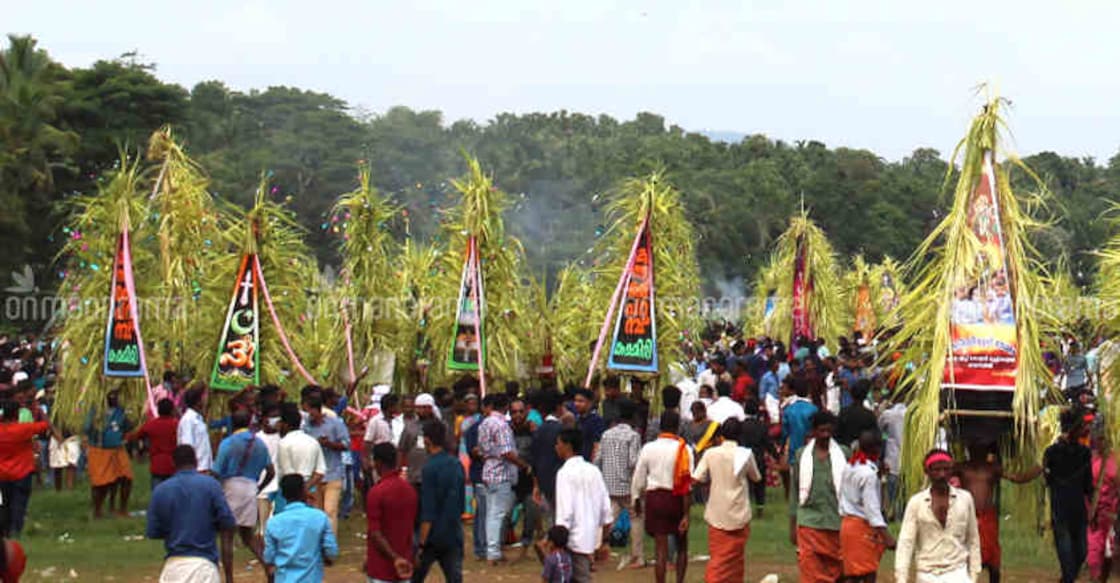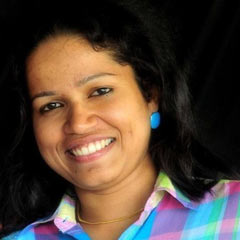Unique Kerala | Kaliyattakkavu, a temple of religious harmony in Malappuram

Mail This Article
Malappuram: Every year, in the Malayalam month of Edavam, a festive mood pervades Thalappara, a non-descript village near Chemmad in Malappuram district as the local community comes together, rising above religious barriers and traditional orthodoxy, to celebrate an annual ritual at the unassuming but renowned Kaliyattakkavu temple.
The gala event called Kozhikkaliyattom, dedicated to Kaliyattakkavilamma, the presiding deity of the temple, appeals to all class of people and is synonymous with communal harmony that Kerala has always been known for.
Kozhikkaliyattom is conducted on the 12th day of the main festival, which commences on the first Monday of Edavam.
In an enduring example of interfaith harmony, the temple still follows the tradition of its priest and devotees seeking the blessings from Mamburam Dargah, the shrine and mausoleum of sufi saint Sayyid Mouladaveela Thangal, before taking out the procession which marks the beginning of the ritualistic ceremonies.

Though there are different local versions about the origin of the custom, references to it are found in ‘Malabarile Rathnangal’ authored by K K Muhammed Abdul Kareem. According to the book, it was Mamburam Thangal, an advocate of coexistence and a champion of the oppressed, who initiated to evolve a consensus among the temple stakeholders to allow Dalit community to host Kozhikkaliyattom on the twelfth day of the annual festival.
“Thousands of Dalit community members from various parts of Malabar flock to the temple carrying decorated effigies of horses made out of palm leaves. They come in processions, rhythmically dancing to drum beats. The folk drum dance performance during the procession is an exotic display of extravagance and grandeur,” reads ‘Malabarile Rathnangal’.

The entire festival has a bazaar-like ambiance to it as vendors from neighbouring districts would arrive in hordes and set up makeshift shops selling a wide range of products including household articles and handicrafts.
There are references to Kozhikkaliyattom in 'Mappila Malabar' written by Dr Hussain Randathani as well. “As a mark of respect for Mamburam Thangal, the lower caste communities in Malabar come to the festival with horses in effigy and conduct special rites to honour Mamburam Thangal,” it reads.
Daily pujas are not part of the temple rituals. Special pujas are performed during the 30-day ‘Mandalam’ season and the 17-day Kaliyattom festival. While rituals and ceremonies associated with the festival take place after dusk on all other days, ‘Kozhikkaliyattom’ is held during daytime. The name of the event is a clear indication that roosters feature prominently in offerings to the deity.
Though the private temple is managed by a family trust (currently a legal battle is on over its ownership rights and the matter is pending before the court), people from every strata of life enthusiastically participate in the Kozhikkaliyattom festivities.
A traditional ritual called ‘Kappolikkal' or 'Kavvu polikkal' marks the beginning of the festival. Thereafter the devotees, carrying the effigies, would visit houses in the locality chanting hymns of praise to the goddess.
After the ritualistic circumambulation, the effigies would be destroyed on the temple premises as part of the custom.
Narayanan Nair, one of the adhoc committee members of the temple appointed by the High Court, says that even incessant rains, common during the month of Edavam, fail to dampen the spirit of devotees attending the festival.
Though the private temple belongs to Velivelli family, a Nair Tharavadu in Moonniyur, as many as fifteen families, belonging to Nair, Thandan, Mannan and Velan communities, have stake in it.
“The size and shape of the effigies have undergone a sea change with the passage of time. Small, modest miniature models have made way for huge, imposing ones. Not only Hindus families, but people cutting across religious lines take part in the Pakal Kaliyattom which takes place during day,” says Ramachandran Nair, one of the trustees.
“The ritual is the manifestation of the religious harmony that exists among different communities. Followers of all faith attending the festival make it a point to offer prayers at the nearby mosques also. It is heartening to see the Muslim families in the locality taking an active role in the conduct of the festival,” Narayanan Nair says.
According to Fasal C, assistant professor at Government College, Madappally, the history of the Kaliyattakkavu dates back to the 19th century, when the Thangal family of Mamburam wielded influence in the area and lower caste Hindus started converting to Islam in large numbers.
“The history of Kaliyattakkavu is a combination of myth and reality. Though there are several events associated with the annual festival, the temple becomes lively during the Kozhikkaliyattom. It could be a reflection of the social system and behaviour which existed till the 19th century in Kerala when the people from the lowest rung of the caste hierarchy were subject to untouchability and other forms of discrimination. When they got a chance to worship the deity and host the festival for a day, they might have done it with extreme vigour and fervour,” he opines.


